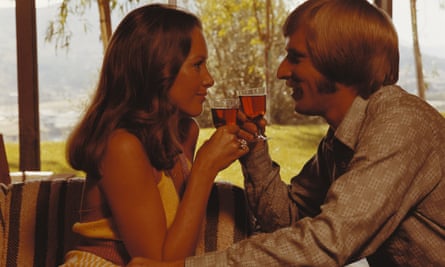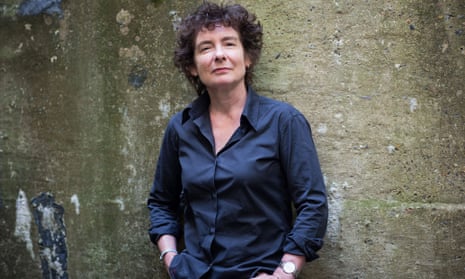Every winter, the writer Helen Macdonald comes to visit me in the Cotswolds. She brings her parrot and her closest friend. Her friend travels over from Australia with a Japanese knife in her luggage; she loves to chop vegetables and needs the best knife to enjoy doing that. So while the parrot eats some finely sliced kale from my garden, we toast our yearly meeting with some wonderful wine. This time it was Krug 1988 followed by Lynch-Bages 1996.
I don’t plan ahead on the wine. I think about what I have in boxes around the place, and what the mood feels like.
I love champagne; the half-bottles in my fridge cheer me up just knowing they are there. The halves are nothing fancy – I wait till there is a special offer at Waitrose or Tesco, or Laytons, and buy a dozen or so. They are perfect for an evening alone when you need a bit of a lift, or for a little lunch for two. I keep one in the car, too, James Bond-style, though I don’t have the wine cooler to match. My half-bottle in the boot is for emergencies. I haven’t had the emergency yet, but who knows? It might be my Brexit bottle.
As well as the everyday halves, I keep Bollinger for what I think of as ordinary special occasions but, when I can afford it, I buy in some splendid champagne.
It won’t be Krug every time – and I could not afford to buy the 1988 now, as it’s about £500 a bottle. The secret is to keep your wine for so long that you don’t remember what it cost when you bought it and you don’t care what it costs now.
I started buying wine to lay down in 1987, on the advice of my literary agent at the time, the late Pat Kavanagh. Her husband, Julian Barnes, is far more serious about wine than I shall ever be, but Pat was able to smuggle out a few bottles back then – and as I was 28 and knew nothing, beautiful wine was a revelation. Like liquid history. How could it get better and better over time? Why didn’t it give me a headache, even if we drank too much?
I took Pat’s advice and put aside some money every time I published a book, so that I could buy en primeur, keep the wine in bond, and then just leave it alone. I was also able to buy some vintages from the 1980s, and I still have a few bottles of 1985 Lynch-Bages. That has sentimental value because it was the year I published my first book, Oranges Are Not the Only Fruit. I bought the Krug with money from Written on the Body in 1992.
Over the years I have gone on buying – not with any great intent, or much of a plan, except pleasure for myself and others.
As a writer, I live on my wits. The money I make is erratic and unpredictable, and I cannot know from one year to the next whether I will have a surplus or not. On the other hand, I avoid holidays because they make me panic, so there is usually something in the kitty for a few decent cases of red wine and champagne to put aside for later. Or much later. As I get older, I am glad to have wine that is companionably getting older with me.
I don’t have special wine glasses and I don’t show off. I never tell anyone what we are drinking unless they ask. If anyone asks, there will be a story about the wine itself, and a story about when and why I bought it. But it is enough for me to know those stories and I don’t want to be a wine bore.
I do want to be a wine evangelist, though – after all, I was brought up to be a missionary and save souls – so I just can’t let go of the fire to convert others, to show them what they are missing.
Wine is wonderful. Wine is earth and sunshine, frost and harvest. It is solace and celebration.

The miserable puritan Brexit British live in constant fear of pleasure. In 1606, with James I on the throne, and the Puritans pushing for political ascendency, Britain passed the Act to Repress the Odious and Loathsome sin of Drunkenness. Wine was especially frowned upon by the Puritans because much of it came to Britain from France and Spain – Catholic countries.
Unfortunately, snarling at Catholic wine followed the usual route of the law of unintended consequences, and boosted the homegrown gin trade. By 1700, the English population of less than 7 million was drinking 18m gallons of gin every year.
In the 1960s, foreign holidays and air travel, and the beginning of mass tourism, slowly brought wine back home for the British. At that time, when I was too young to drink anything except milk, wine accounted for less than 10% of alcohol consumption in the UK. Real men drank beer. Real women drank gin – or if you were unlucky, sweet sherry and Babycham.
Girls, though, were soon steered down the aisles towards wine, usually white, by the drinks industry. Let’s not forget that there is a drinks industry, nor should we imagine that our tastes and habits are just our own thing. Selling us alcohol is like selling us anything else – it makes money. Wine has been a success story for the British drinks industry. In 2017, we spent nearly £11bn on wine.
Are we drinking too much? That depends on how much you are drinking.
I drink with dinner five days a week and, although I look for value, I don’t look for cheapness. If someone offers me supermarket plonk, I much prefer to drink water. I’m not drinking for the alcohol; I am drinking because I love wine.
David Nutt, the genial and sensible pharmacologist, who was David Cameron’s drugs adviser, got fired for saying that alcohol is routinely more dangerous than the drugs ecstasy and LSD. He was right that our drugs policy is more about morality and hysteria than evidence-based science, and he is right that alcohol abuse is a personal and social scourge. Unfortunately, his answer, currently in development, is alcosynth – a product that he hopes will give us all the relaxation and party feel of drinking without the hangover and liver damage.
The mistake here is to concentrate on the effects of alcohol – good and bad – rather than the pleasure of drinking.
Nothing would persuade me to give up wine and I make sure there is no need to do so. The thing about pleasure is that you have to keep it pleasurable. Addiction and dependency are not about pleasure.
If I had been following health guidelines over the years I would have been scared of eggs, avoided carbs, red meat, full fat milk and butter, while confronting supermarket shelves stacked with obesity-crisis refined sugar products and processed food.
Instead, I eat well and I drink well. My motto is: one liver, one life.
A real pleasure is drinking different wines according to the season. I eat seasonally so why wouldn’t I drink seasonally?
It’s winter now, so for my everyday drinking I’m enjoying a Guigal Côtes du Rhône. Majestic sells it, along with a current favourite, a lovely Bourgogne Pinot Noir 2016 Nicolas Potel. That wine is 12.5% ABV, which is what wine used to be before climate change gave us 14% as the new normal.
I am never without a few bottles of Berry Bros’s Good Ordinary Claret which, at a tenner a time, is excellent value. In fact, I am thinking of joining its wine club to extend my range of what I drink regularly. But am I wrong? Wine that you know is like a familiar friend: reliable, at the ready, comforting, not too demanding. How many friends do I need?
On the other hand, if the British hadn’t become more adventurous with wine, we’d still be drinking Blue Nun. British food and drink were pretty awful before we got the hang of Europe. With Brexit waving goodbye to all that, no wonder we need a stiff drink.
Travelling is a great opportunity to try new wines you may never want to bring home. When I travel I stick to local wines and ask advice.
Working in Bilbao recently, I had wonderful evenings drinking wine that cost between €3 and €5 a glass. On each visit, the barman gave me a range of styles to try, explaining the differences between modern and traditional Spanish wine-making. That is better than a YouTube tutorial, and I have found that around the world people are proud to share their knowledge – and, if you are lucky, the beautiful young wines in plastic containers that will never be bottled or exported, but which are alive with the land where they are made, and pour into the tumbler like a genie out of a bottle.
All of this helps you navigate a wine list or make an educated guess when faced with unfamiliar bottles. Most of all, it’s fun.
And that’s what I want to stress about wine. Pleasure and fun.
We are not on this Earth for long. Enjoyment and happiness matter. Sharing with friends is important. Spending a little more money on a little less wine will increase the good things in life.
